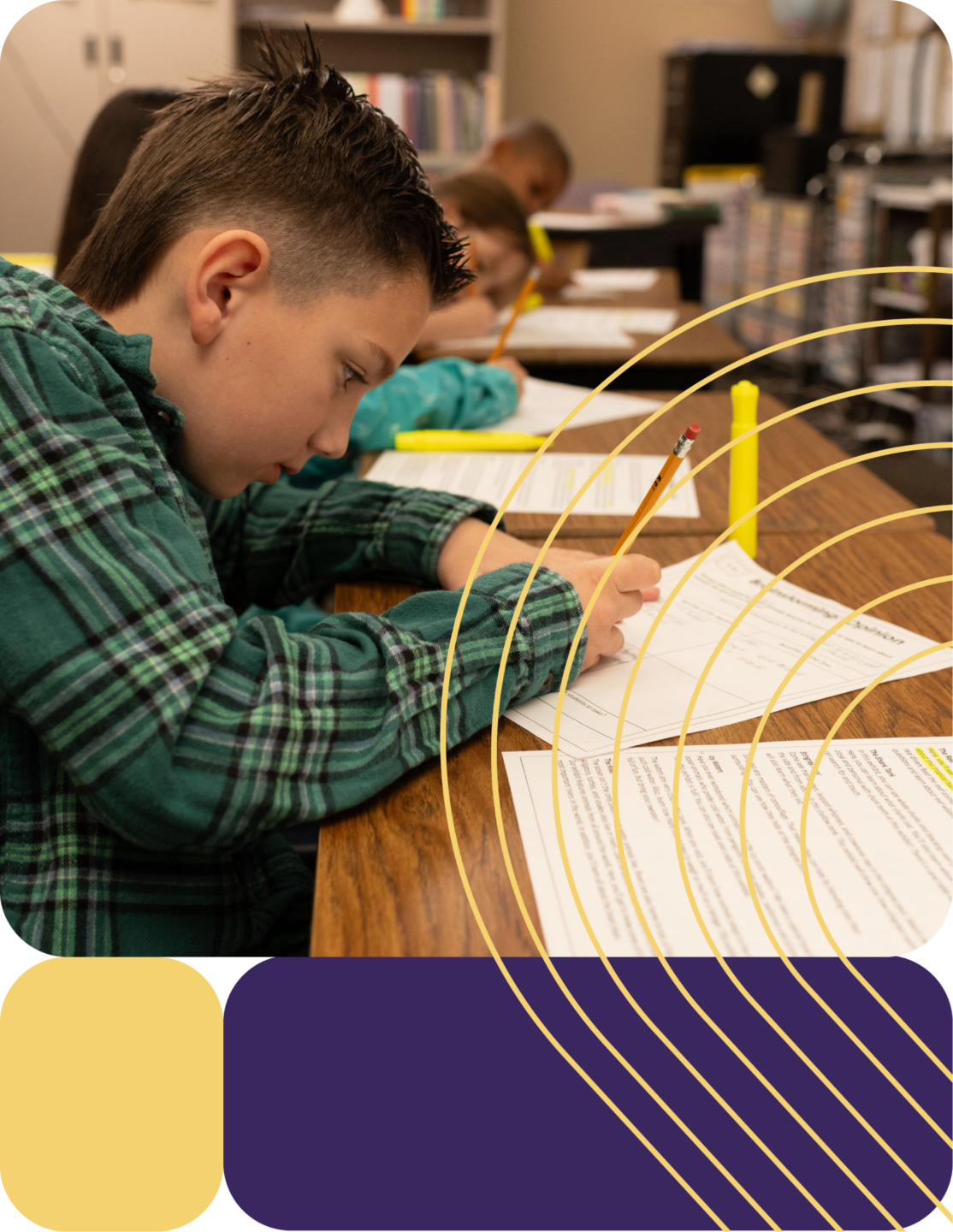Built on Research.
Proven by Results.
Discover how Simplify Writing® helps schools raise achievement with explicit, data-driven writing instruction aligned to the science of literacy.
Read Our Evidence BriefRead Our Case Studies


Case Study Conducted by Johns Hopkins University
Evaluation of Simplify Writing in St. John Nepomucene School: A Case Study
Research-Based Strategies
The Simplify Writing® Program was built using research-based strategies and tested in real classrooms.
STRATEGY #1
Dedicated Writing Time
Although applying writing skills naturally happens in other subject areas, studies support having a dedicated writing time where students can receive adequate practice and instruction in writing.
(Graham, 2019). Graham, S. (2019). Changing How Writing Is Taught. Review of Research in Education, 43(1), 277–303.
STRATEGY #2
Strategy-Focused Direct Instruction
Strategy-focused instruction is one of the most effective approaches to improve writing skills. It aims to teach developing writers strategies that give them executive control over their writing processes. Programs under this kind of instruction tend to have multiple components that include direct instruction, modeling, and scaffolded practice. Study findings suggest that both components, direct teaching and modeling, are equally effective in improving writing skills in upper primary students.
(Lopez, 2017). Lopez, P. (2017). Effects of Direct Instruction and Strategy Modeling on Upper-Primary Students’ Writing Development. Frontiers Psychology.
Marzano, R. (2017). Conducting Direct Instruction Lessons. In The new art and science of teaching (pp. 29–34). Solution Tree.
Raquel Fidalgo, Mark Torrance, Gert Rijlaarsdam, Huub van den Bergh, M Lourdes Álvarez, Strategy-focused writing instruction: Just observing and reflecting on a model benefits 6th grade students. Contemporary Educational Psychology, Volume 41, 2015, Pages 37-50.
STRATEGY #3
Teacher Clarity
Teacher clarity goes beyond simply writing the standards on the board. We support both teachers and students by providing clear purpose, success criteria, and learning goals for every lesson. We must have appropriately challenging goals in order to maximize feedback (Hattie, 2010). The way that we sequence our lessons provides a logical pathway from where the students are at to where we want them to be.
Hattie, J. (2010). Visible learning: A synthesis of over 800 meta-analyses relating to achievement. Routledge.
Freibrun, M. (2021). Getting started with teacher clarity: Ready-to-use research based strategies to develop learning intentions, Foster student autonomy, and engage students. Ulysses Press.
STRATEGY #4
Teacher Modeling & Exemplar Usage
We provide age-appropriate model texts for every unit. These texts reflect the elements of the writing genre that we want students to replicate in their own writing. In one study, the organization scale revealed significant overall differences between the Models Group and No-Models group. Students in the Models group received higher scores than students without models [Models = 4.1, Control = 3.7, F(l, 80) = 6.4, p < .01]. This result may reflect better organization of sentences within sections as well as inclusion of information in the appropriate section (Charney, D).
Charney, D., & Carlson, R. (1995). Learning to write in a genre: What student writers take from model texts. Research in the Teaching of English, 29, 88-125. .
STRATEGY #5
Graphic Organizers
Graphic organizers provide a necessary visual element for our English Language Learners and visual learners. Several studies (e.g. Kansızoğlu, 2017) show that students using a concept-mapping learning strategy do better and retain what they have learned longer than students who limit themselves to text-only strategies. We use consistent graphic organizers throughout our units to further increase retention.
Kansızoğlu, H. (2017). The Effect of Graphic Organizers on Language Teaching and Learning Areas: A Meta-Analysis Study. TED EĞİTİM VE BİLİM. 42. 10.15390/EB.2017.6777.
Corrigan, K. (2017). The Use Of Graphic Organizers When Writing With Dual Identified EL And LD Students. Hamline University.
STRATEGY #6
Consistent & Timely Feedback
Feedback is the cornerstone of revision during the writing process. In addition to strategies to incorporate peer and teacher feedback, we include many self-assessment opportunities. We base our feedback materials around the core principle that a “where to next” or “how to improve this work” comment is necessary for student improvement (Hattie, 2019).
Hattie, J. A., & Clarke, S. (2019). Visible learning: Feedback. Routledge.
READY TO GET STARTED?
Program Options
For Schools
Thousands of teachers and administrators trust the Simplify Writing® Program. We make the purchase order process simple so that your teachers can get the curriculum they need faster.
For Personal Use
Get instant access to our full writing curriculum with a personal teacher license that you can take with you to any school or district. Please contact us for help getting school funds for the program.
For Homeschool
With simple directions and instructional videos for children and their home educator, our secular homeschool program is the easiest way to grow writers at home. Get instant access to everything you need.






